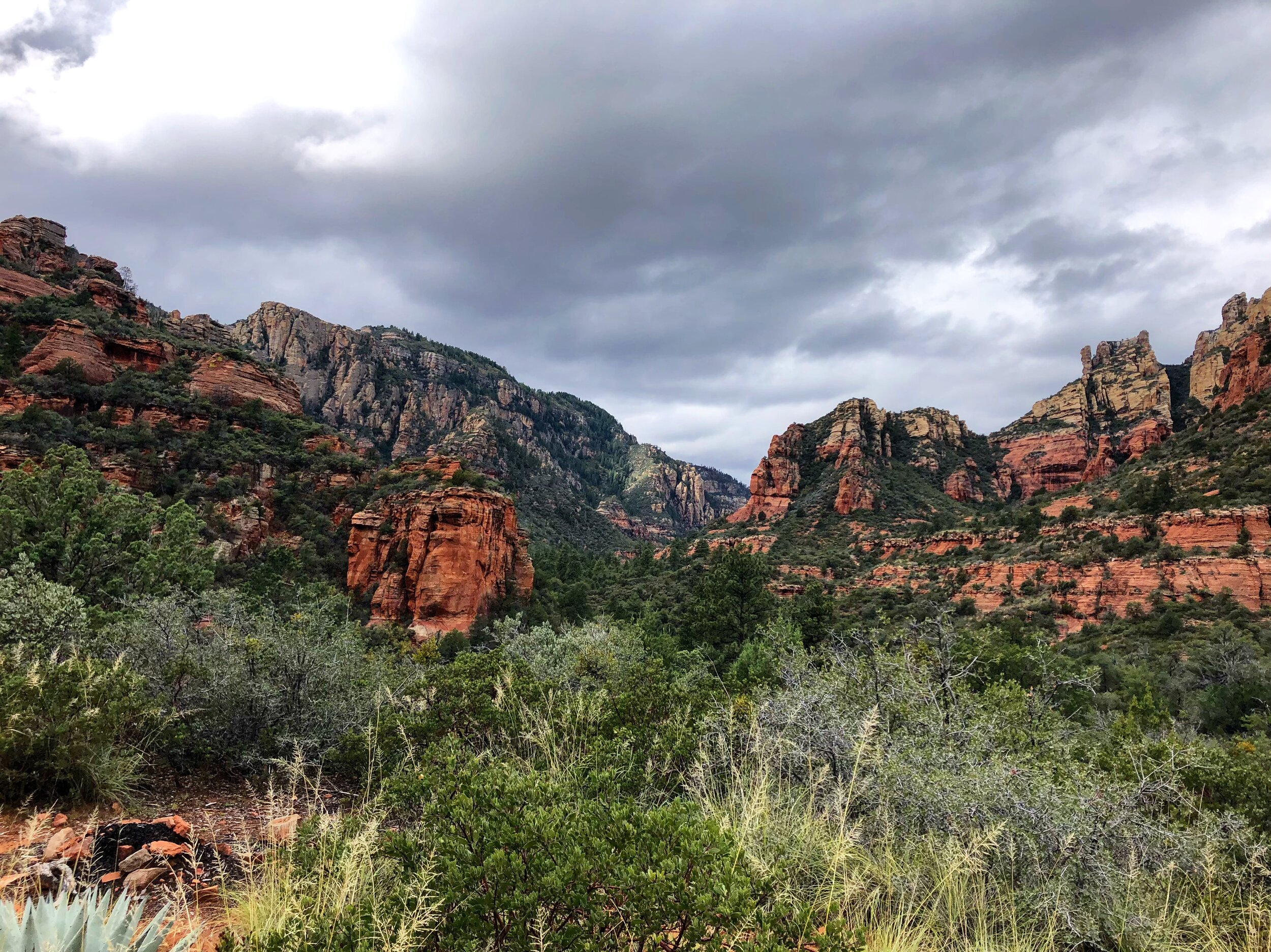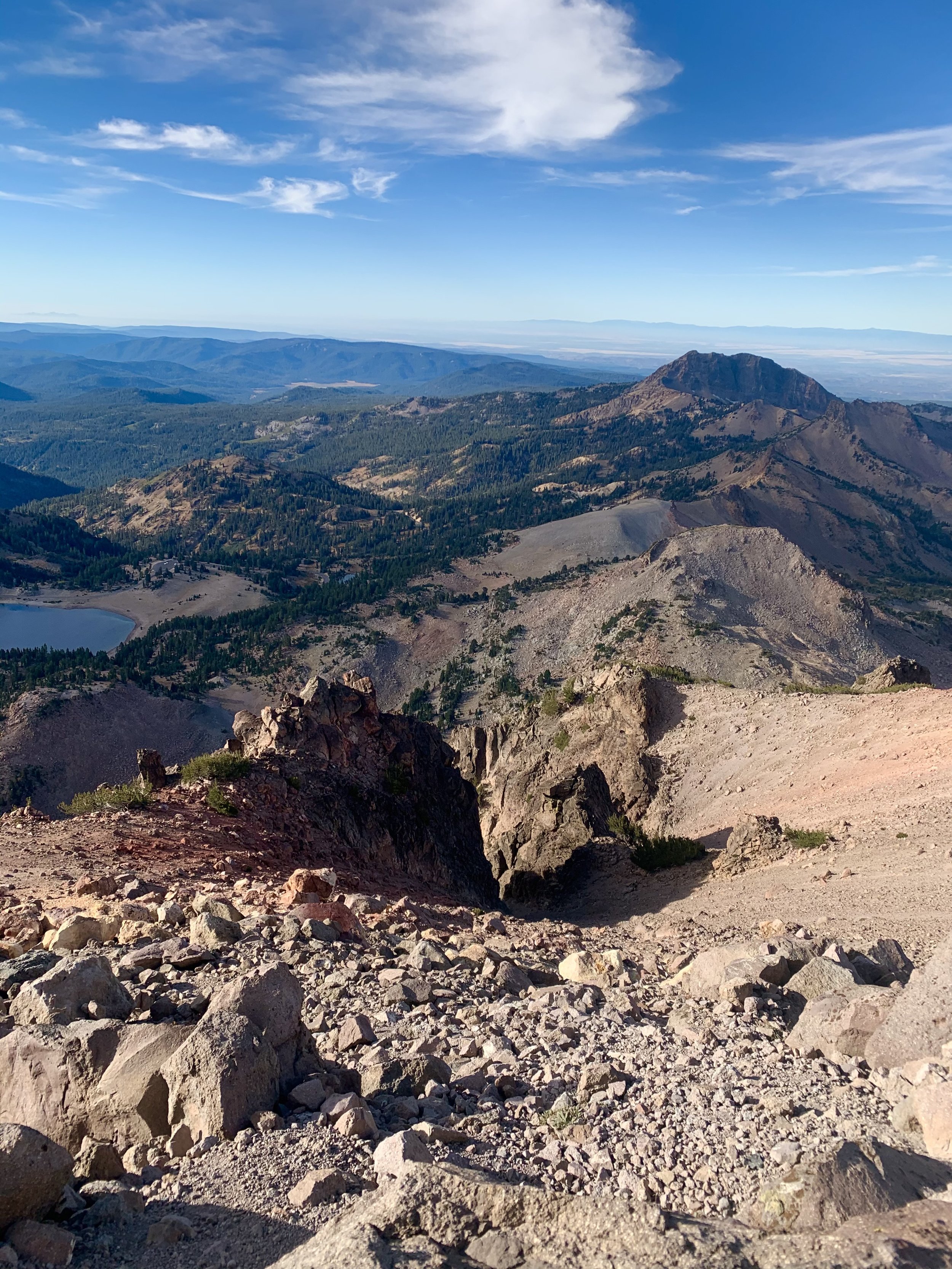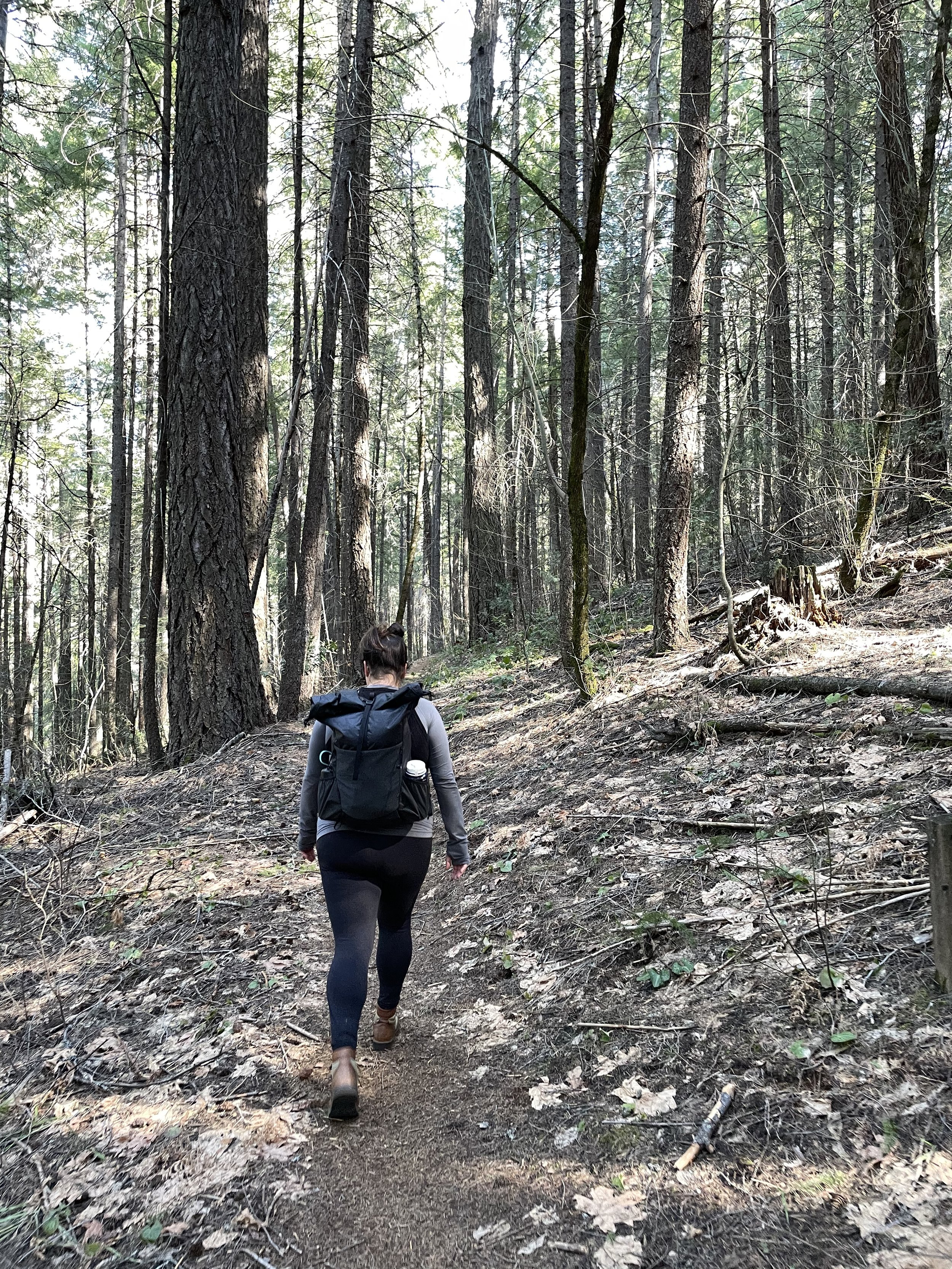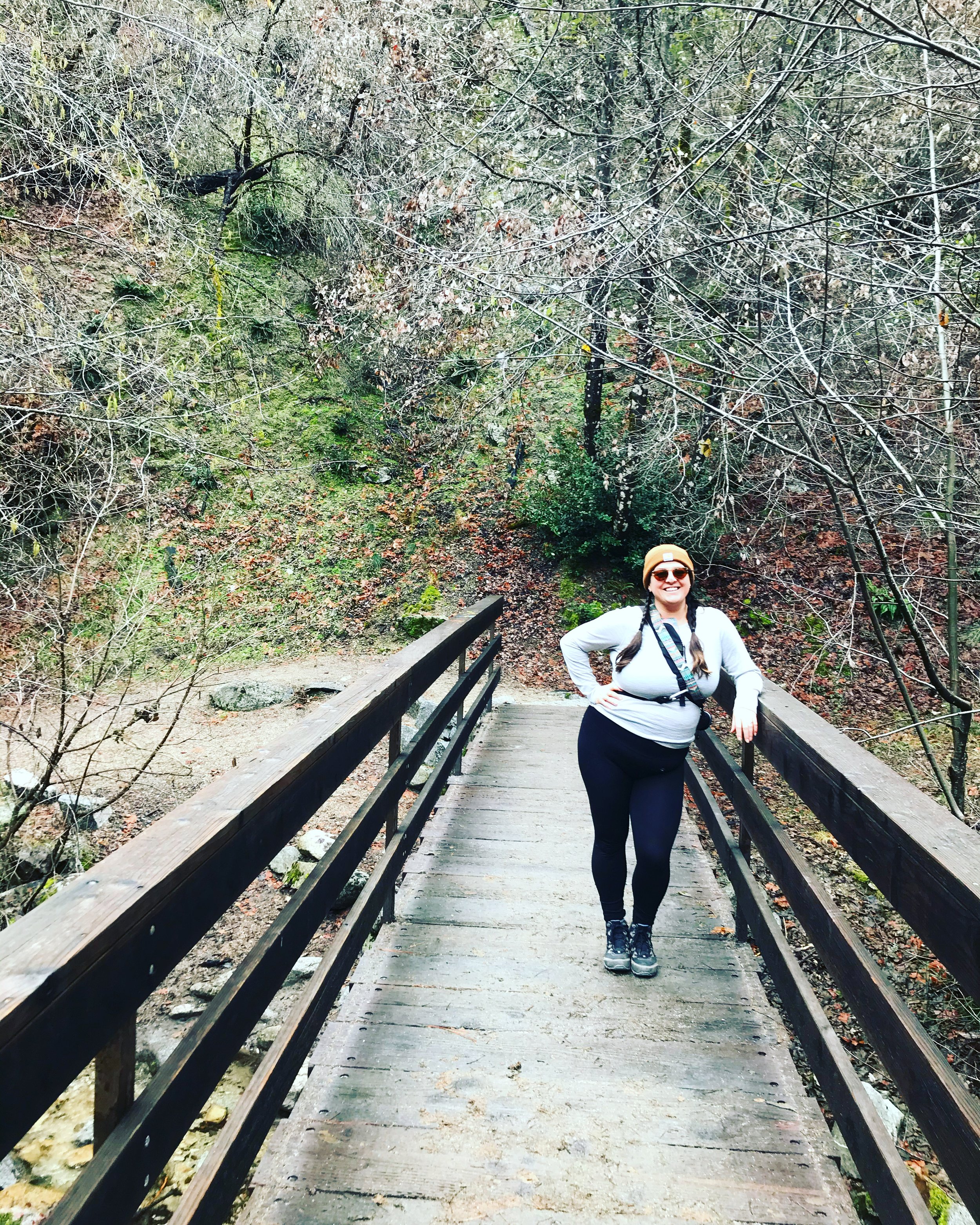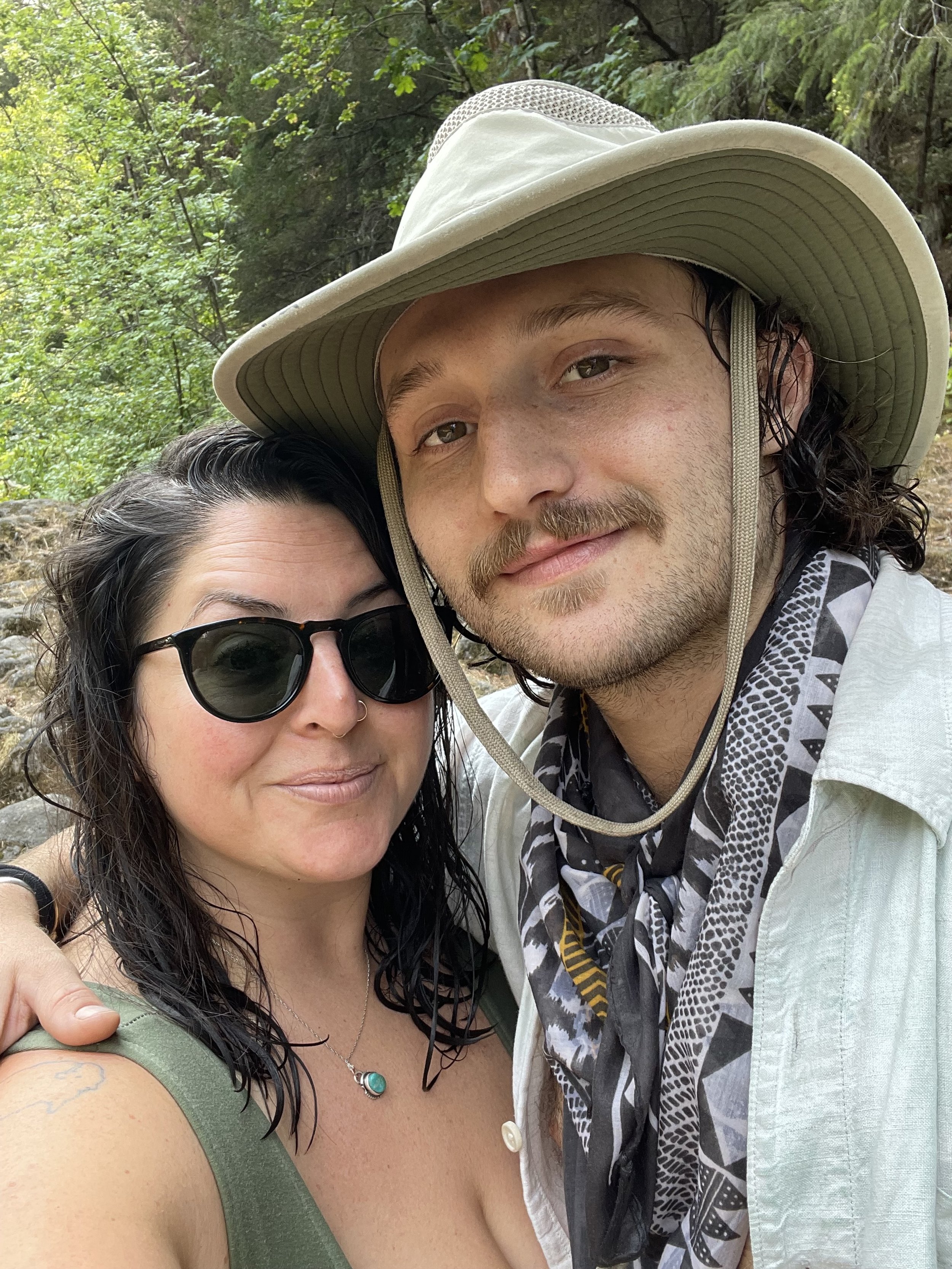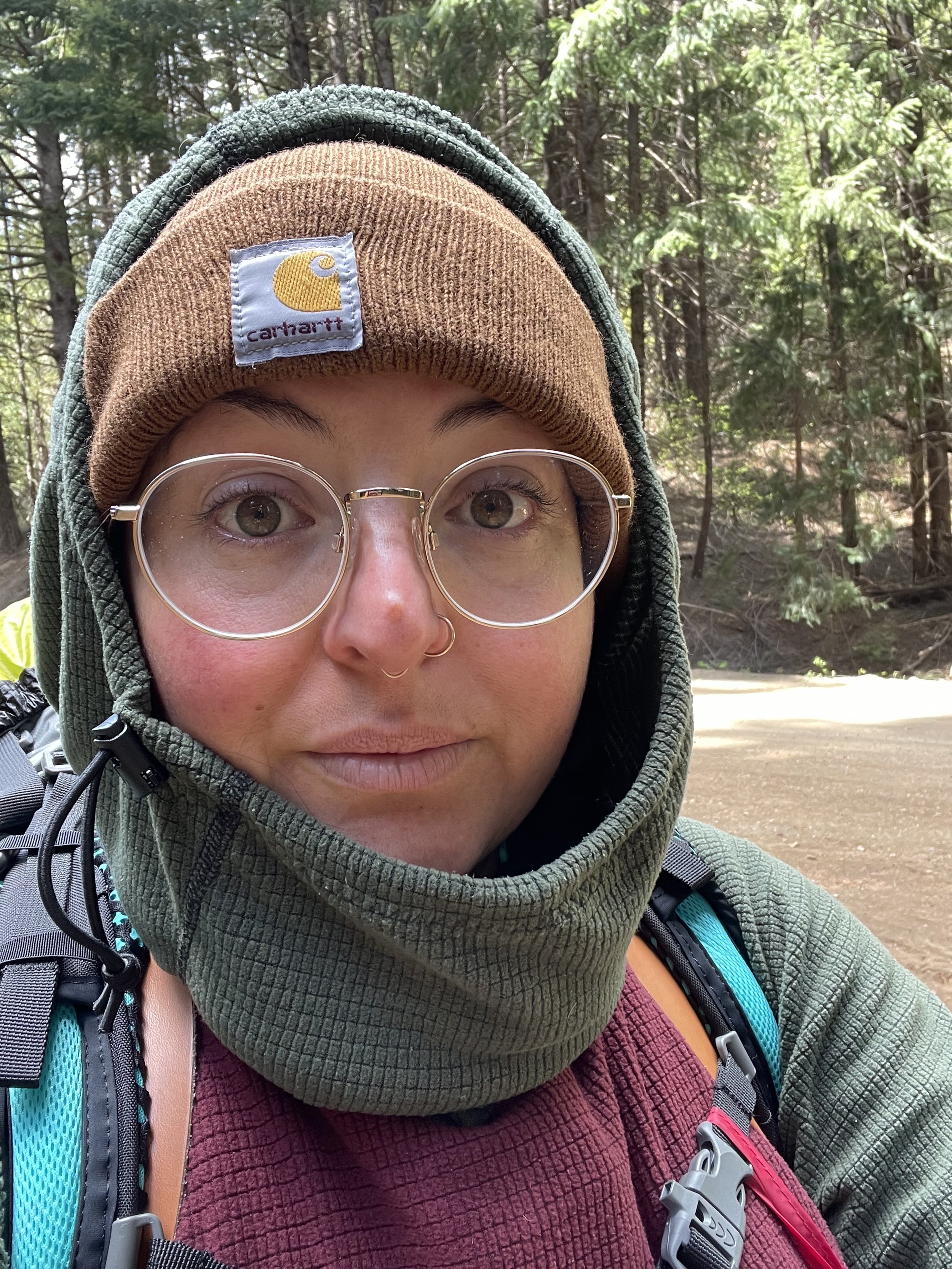A Little About Me
My parents raised me in far Northern California, at the base of 14,000-foot Mount Shasta. My mother is a descendant of Armenian ancestors but was born and raised in Southern California. My father is a descendant of Irish and English ancestors, but his family came out here from Oklahoma. My Dad’s family moved to Dunsmuir, California when he was very young, to work for Southern Pacific Railroad. The men in the family became railroad conductors, and my dad eventually took a job as an engineer. Driving trains meant that he discovered some spectacular nature spots – he would see these river spots from the engine and later figure out a way to get down to the water. He has been an avid fisherman since childhood. He’s the kind of guy that catches the biggest trout out of anyone fishing, and it’s usually within the first 10 minutes of getting to the river. He treats the Sacramento River like it is one of his oldest friends. Because of my dad, and his relationship with nature, I’ve always spent a lot of time outdoors. As a kid I’d go with my parents to get a permit and cut down firewood, we would swim in the rivers and creeks, and a lot of my childhood was spent on our boat, gliding through the blue-green water of Lake Shasta. They taught me how to pee outside, how to plant food and tend a garden, and showed me all their favorite nature spots.
My Relationship with Nature
As a kid, I was outside a lot, and usually barefoot. I climbed trees and made forts and let my imagination run wild – I grew taller while the manzanita grew wider, and the oaks created more shade. I once wrote a letter to President Clinton, asking him if he knew about all the clearcutting in our forests – thinking to myself, “no one should be allowed to cut down all those trees!”
In my teenage years, I got caught up with having a social life, and throughout high school and college, I lost my connection with the natural world. Looking back, I think that’s one of the reasons I turned to partying in college, because I felt disconnected from nature and therefore, felt a deep emptiness inside myself. Not that nature wasn’t a part of my college experience, I went to Humboldt State University which is nestled into the Northern California coastal redwoods. It was a great place to explore nature. I went to the beach, tiptoed through Fern Canyon, and hiked around the big seaside cliffs in Trinidad.
My husband, standing in front of a foliage-covered wall in Fern Canyon.
At that time, nature was never really for me, I used it as an escape from bad decisions or a mindless thing to do with friends. After college, I continued to struggle with drinking. I would be in this on-again/off-again relationship with vodka until I was 27. At 27, I got sober for 3 years, relapsed after a bad breakup, and then got serious about being sober when I met my husband. Right as I was getting sober the second time, I was diagnosed with Hashimoto’s disease – a thyroid condition that is the thief of energy – and drinking became the last thing on my mind. My sobriety and my relationship led me back to nature, and the outside world pulled me in as if I had never left. Since then, I have used nature as my church, my sponsor, my therapist, and as an escape from societal constructs.
I have even gotten paid to hang with nature, when I worked as a rugged jeep tour guide in Sedona, Arizona. It was my favorite job to date. I spent 12 hours a day out in the red rocks of Coconino National Forest, educating people about environmental stewardship, flora, fauna, history, and how humans can shape the environments around them.
A canyon just outside of Sedona, Arizona.
Not many tourists know, but the area surrounding Sedona is called the Verde Valley. In the 1500’s when the Spanish came through, they saw what some described as a green ocean of waist high grass. That desert used to be a lush grassland. In the 1800’s there was a copper mine in the nearby mountains. Smoke from that smelter polluted the land all around the mine, including the grasslands. Additionally, settlers there brought thousands of livestock animals to the Verde Valley for grazing. Those grazing animals ate a lot of that grass and trampled the topsoil in the area. The topsoil washed away and over time, that grassland became a dry desert landscape. The settlers at that time didn’t know how they were affecting that environment, and sometimes I wonder what small things we’re doing now that will lead to big consequences.
My Thoughts on the Outdoor Industry and Thicc Womxn
I am overweight - if you ask my doctor he would tell you I am obese. I am 5’5” and weigh 230 pounds. I am also SERIOUSLY busty. This means I wear a 16-18 in pants and at least an XL in tops. Can I just say: there’s no use marking something “XL” if it doesn’t fit an extra-large person? I can try on 15-20 jackets and they all zip up over my stomach, but never over my chest.
I wish sometimes I could walk into a place like REI and find my size in EVERY SINGLE item. I always find smaller sizes, I occasionally will find a large, but I rarely find an XL (and sometimes when I do, it doesn’t fit anyway). So, I walk around, looking at these amazing pieces of wearable gear that I can’t wear.
Patagonia, which is by far one of the most popular outdoor brands these days, has an “extended size” selection, which is great! But when I went to the website, all the models seemed to be a small/medium size, and the largest size they carried in most of their items was an XXL.
Now come with me on this train of thought: Their size chart says that their XXL is made to fit the waist size of 41.5 inches. According to the CDC, the average waist size for women in the US is 38.7 inches, so average women are somewhere between Patagonia’s XL and XXL. If the average woman fits in XL-XXL, what are all the above-average women supposed to do? There are plenty of options for below-average-sized women, and none for anyone above their average size.
For me, and other women out there like me, it feels like a secret message from Patagonia saying, “YOU DON’T BELONG HERE”. But everyone belongs in nature! Nature never looks at me and says, “you’re too fat to be here”, it always accepts me exactly as I am.
Why does it feel like a punishment for being overweight? Why does it feel so isolating to live in this body?
View from close to the Summit of Mt Lassen.
Patagonia is not the only brand out there like this – you can change out almost any brand name and it will fit into the same conversation. Don’t these brands want my money? I am a college-educated, middle-class woman – I have money, I have buying power. There is a demand here, I’m begging them to make something for me! It feels like I’m just not good enough. If that isn’t the message they’re sending, I’d like to hear why they don’t want me to represent their brand.
It’s Important for your Outdoor Gear to Work for YOU
If someone wears ill-fitting gear, it is not only uncomfortable, it can be dangerous. Pretty much everyone knows what it’s like to wear the wrong shoes, right? Blisters, pain, the possibility of infection, slowed pace, etc. Pants that aren’t designed well give me HORRIBLE thigh chafe - try walking 10 miles with thigh chafe – it is torture!
Wearing a jacket that doesn’t zip totally defeats the purpose, as you can’t maintain your body heat and you also won’t stay dry in the rain. The “type 2” fun of backpacking and hiking demands clothes at least be comfortable and functional.
What I really want is to be able to focus on the world around me. I revel in the dirt trail under my feet, the expansive sky above me, the trickle of water somewhere off in the distance, the smell of hot pine, the pounding of my heart in my chest reminding me I am alive, I exist, and to just exist and experience this? I am so profoundly lucky!
The Difference for Womxn
I have hiked solo many times. I traveled around the southwestern states with my black lab, and we hiked a lot! I have always tried to stay super alert and aware of my surroundings, and when I was solo, I always hiked dog-friendly trails so I could bring my dog. There was only one time when I was followed by a strange man. I was on a loop trail on a sunny, hot day, in Sedona, Arizona. I came upon a man in a dark ballcap and all-black clothing going in the opposite direction. I tried to make eye contact and say “hello” but he kept his head down and didn’t reply to me. After we passed each other and walked a few paces, I looked back and he was standing on the trail looking at me. I turned around as if nothing was wrong, and kept walking with my dog. I went around a few turns and when I couldn’t see him anymore, I stepped off trail and hid in some low brush. Sure enough, in just a few minutes he came quickly down the trail behind me, and he had a very strange look of intensity on his face. After he was out of sight, I took my dog and sprinted back to the trailhead the way I had come. I have no idea if I was being paranoid, but it felt all sorts of wrong and I followed my instincts. I’ll never forget my hands shaking as I put my key into my car door knowing I was moments away from feeling safe again. That experience has not deterred me from hiking alone, only shown me that my instincts are a powerful tool.
I also want to talk about this other phenomenon, and I think it has to do with the fact that I’m overweight. When I am hiking, I often encounter fit people who try to cheer me on. It’s always something like: “You’ve got this!” or “You’re so close to the top” or “get it, girl”. I even met someone at the top of a particularly long and arduous trail who said to me “See? I told you you could do it!” There was never a question in my mind about whether or not I could do it. I know what I’m capable of. I’ve put in 12 miles straight uphill in a day. I’ve climbed a 10,000-foot mountain. I don’t need anyone to tell me what I’m capable of.
Now, these are seemingly nice things to say to someone! Maybe I should be grateful. However, in speaking with my very fit husband, and some of my fit friends, this never happens to them. No stranger has ever tried to encourage them or cheer them on. When this happens, it makes me feel extremely seen and judged. It makes me think that I must be the only person struggling on this hike, with my red face and sweaty brow. I can’t help but think: “This hike is easy for everyone but me”. The more it happens, the more it makes me uncomfortable. It makes me feel like I’m being singled out for the way I look. It’s hard enough to get out there and grind to the top of something magnificent. Having a complete stranger point out that they can tell I’m struggling is embarrassing, and it somehow tarnishes the experience.
Hiking With My Partner
My husband, Blayke, is pretty much the best hiking partner I’ve ever met. When we first met, we weren’t interested in each other romantically, I was just looking for a hiking partner. It was on our numerous hikes within that first month of knowing each other, that we really fell in love. He is 6’3” and his legs are longer than my whole body (at least it seems that way sometimes). He is fit and could hike any trail at least 3 times as fast as me. However, he is kind. He hikes at my pace, and he encourages me only when I tell him I’m struggling. He’s the type of guy that brings an extra warm pair of socks in his pack because he knows I will need some.
My husband Blayke on the trail to Mount Lassen Summit.
Beyond that, he has pushed me to change the idea of what I’m capable of. Before Blayke, climbing a mountain was out of the question. I just wasn’t in good enough shape. Last year though, we climbed Mt Lassen. Standing on top of that mountain was pretty much the most accomplished I’ve ever felt in my life – and I only made it to the top because he knew I could.
Get outside, rain or shine!
We went on a backpacking trip last spring. It was a little too early in the season, and in some high elevation spots, we hit dangerous snow on the trail. At one point we were on the edge of a cliff, on slippery snow, and my right leg sunk down to my hip. My husband became so worried that he instantly became sick to his stomach, and all I kept saying was “please don’t throw up on me”. After it was all over and we were safely on the other side, we couldn’t stop laughing about how weird adrenaline can be. I am so grateful he was there with me that day because I don’t think I could have done it alone.
You can’t always do perfect research beforehand about what the trail may look like on your upcoming hike – most of these places are remote – but what we learned on that trip is that it’s always ok to turn around and go home instead of trudge on headfirst into a dangerous situation.
Final Thoughts: What’s the Point?
I realize that the way I live my life may be very different from the way other people live. That’s alright. I love people anyway.
I also realize that many people feel that if I want outdoor brand clothes to fit me, I should lose weight to fit into them. Change myself to fit in. But what am I supposed to do until I get there? While I live in THIS body, that takes up THIS space? Does my existence in this body deserve less love and respect than a body that looks different than mine? Smaller? Is it more important that a size small person can wear their outdoor gear to get brunch in the city? Or does it make sense that we larger-sized folks want to do nature things too?
I feel most at peace in nature, where there is no judgment. It’s lovely to exist out there, where the way I look is the least interesting thing about me.
**This piece is an excerpt from an interview I did with Garage Grown Gear. They have not yet published it and I really wanted to post it hear so that any followers might have a chance to get to know me better.**




